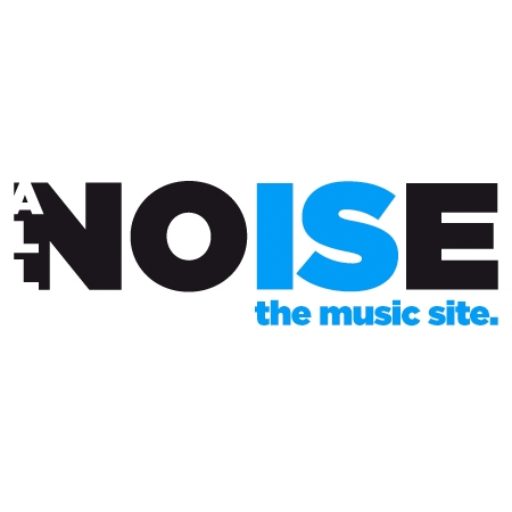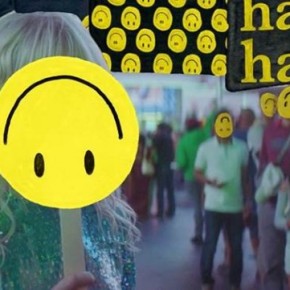It’s been an interesting couple of weeks for Spotify, who have seen their music streaming service – and particularly its artist payment structure – come under intense scrutiny following Atoms For Peace’s decision to remove their songs from the service.
Nigel Godrich, legendary Radiohead producer and Atoms For Peace member, started it all off by announcing on Twitter that he and Thom Yorke had taken the decision to take their album AMOK, and Yorke’s solo album The Eraser off Spotify, saying:
We’re off of spotify.. Can’t do that no more man.. Small meaningless rebellion. Someone gotta say something. It’s bad for new music. The reason is that new artists get paid fuck all with this model.. It’s an equation that just doesn’t work… The music industry is being taken over by the back door.. and if we don’t try and make it fair for new music producers and artists… then the art will suffer. Make no mistake. These are all the same old industry bods trying to get a stranglehold on the delivery system
So, the argument of Team Godrich, which includes Thom Yorke, Four Tet, Jon Hopkins, The Black Keys, Biffy Clyro, Ron Sexsmith and even Brian Molko amongst its ranks, is that Spotify is bad for music because it is geared too heavily towards making money for label bosses and other nasty capitalists, rather than to the artists who actually make the music in the first place.
Perhaps the most interesting perspective has come from new band Hookworms, whose member Matt told the NME that they have earned just £42 from over 100,000 Spotify streams. When you see those kind of figures it certainly becomes hard to defend Spotify as a sustainable business model for musicians.
But were Atoms For Peace right to pull their music off Spotify and start this whole debate?
There have been some responses to this debate in favour of Spotify, most notably coming from Radiohead’s manager Brian Message. In response to Godrich and Yorke’s attack on Spotify Message told the BBC:
I think myself and a whole range of managers look at new technology developments such as Spotify as a good thing. The Internet is a really cutting edge way of fans and artists to communicate with each other and we want to see that opportunity develop and evolve. Streaming services are a new way for artists and fans to engage.
There has also been some good news stories about Spotify in recent weeks. Jay Z’s new album Magna Carta Holy Grail became one of the fastest selling albums despite being available to stream on Spotify on the day of its release, and of course there’s the massive commercial success of Daft Punk’s ‘Get Lucky’ – which as well as selling bucketloads has also broken the Spotify record for the amount of streams.
There was even a study commissioned by Spotify (they were at pains to stress the commissioning pre-dated Godrich and Yorke’s arguments!) that suggested that music streaming helped to reduce online music piracy.
Looking at both sides of the debate from a neutral perspective, it becomes clear where the problem lies with Spotify and music streaming in general. The arguments of Godrich et al are understandably concerned with musicians, and draw sympathy to the plight of new bands trying to fund their early careers. But it also smacks of naïve idealism which ignores the basic truth that the music industry is still undergoing a huge shift due to the disruption caused by the internet and mp3 downloads. Spotify, by their own admission, are still very much in the early stages of a long-term plan to make music streaming the dominant music consumption method of the digital age. It’s a ‘start-up’, and like all start-up’s their early strategy is to build up a dedicated and loyal user base, which can then be monetised effectively in the future. Anyone who has watched The Social Network will know the value of not forcing the user-monetisation issue too soon! The ‘industry bods’ mentioned by Godrich are the investors who are allowing the service the freedom to grow and attract new users. Currently Spotify doesn’t actually turn a profit, because its business model is currently geared towards pulling as many music lovers into the service as possible first. In the long term it will have to earn more money in order to survive, and at that stage musicians, and yes all those nasty ‘industry bods’ and investors, will start to see more money from Spotify.
The problem with this long term plan is that it conflicts badly with the relatively short term needs of new bands to earn money to fund their art. But hindering Spotify’s growth by pulling popular music from it doesn’t help new artists earn more money, it just means it will take longer for music streaming to become the viable, profitable and dominant business model it will inevitably be in the future.
What are your thoughts on music streaming and the debate surrounding Spotify? Join the discussion in the comments below…










